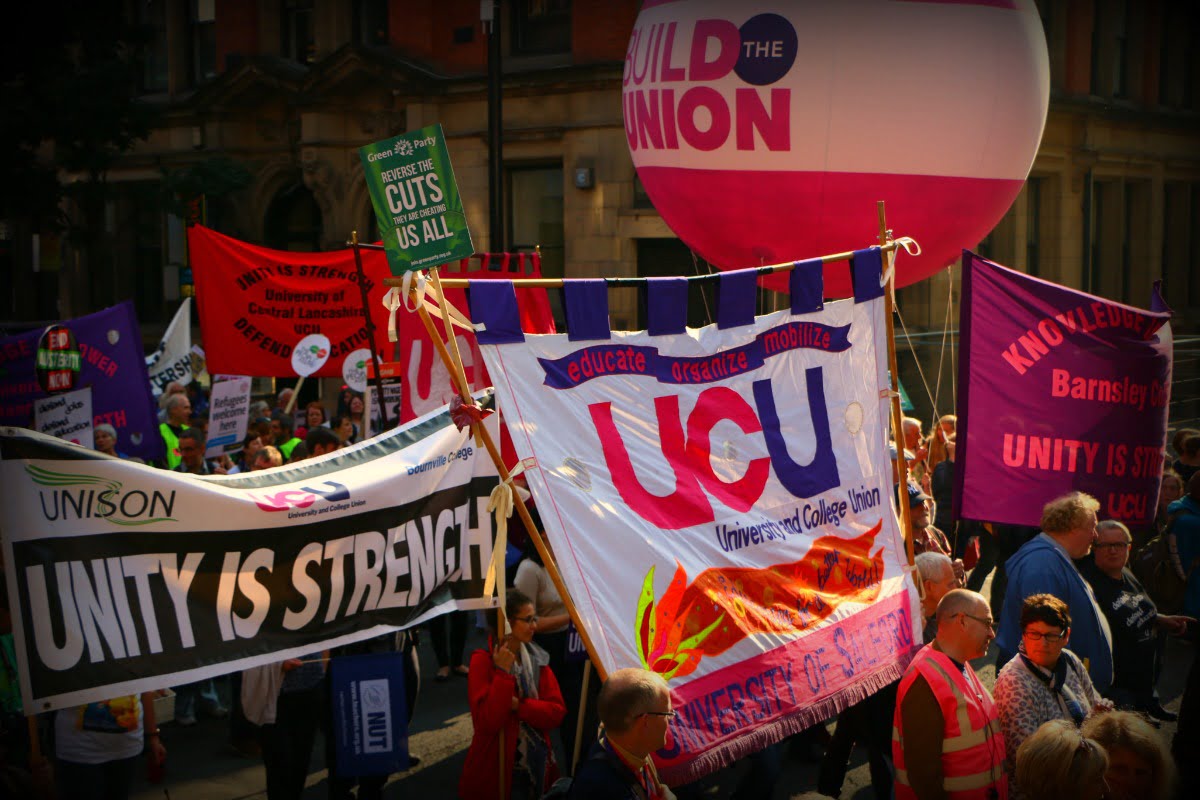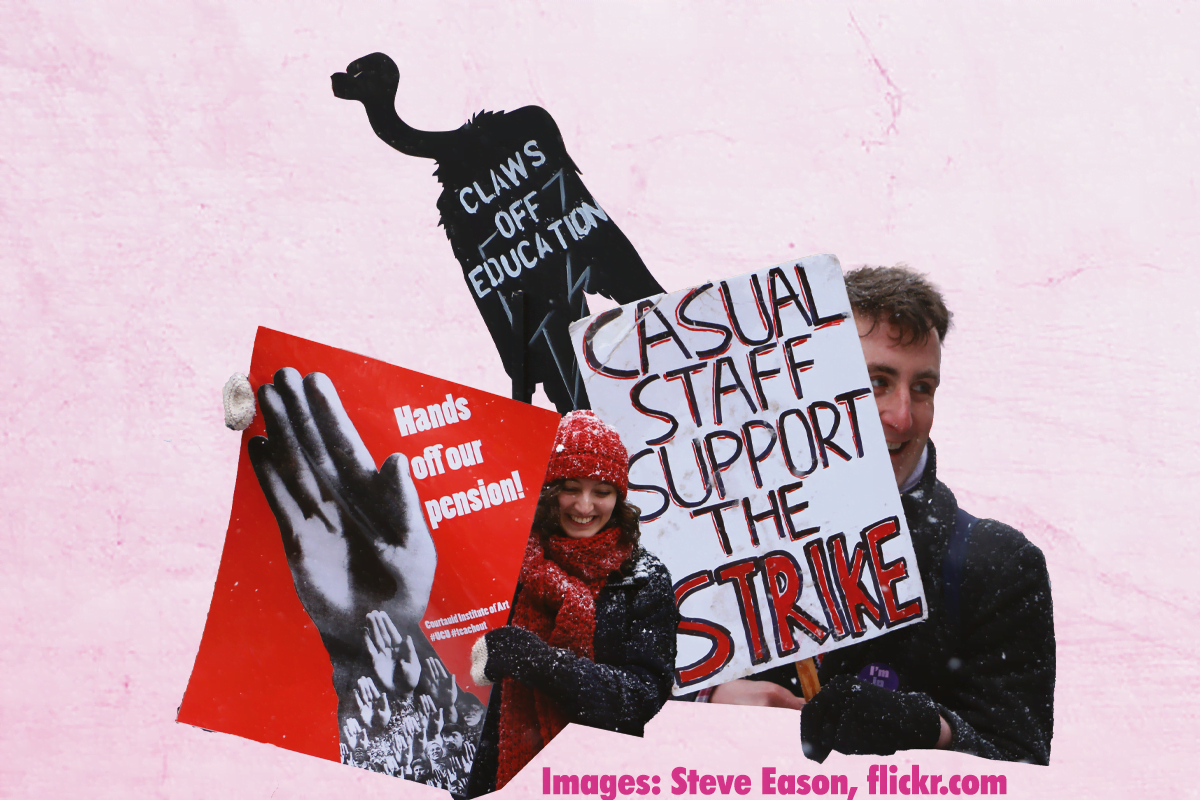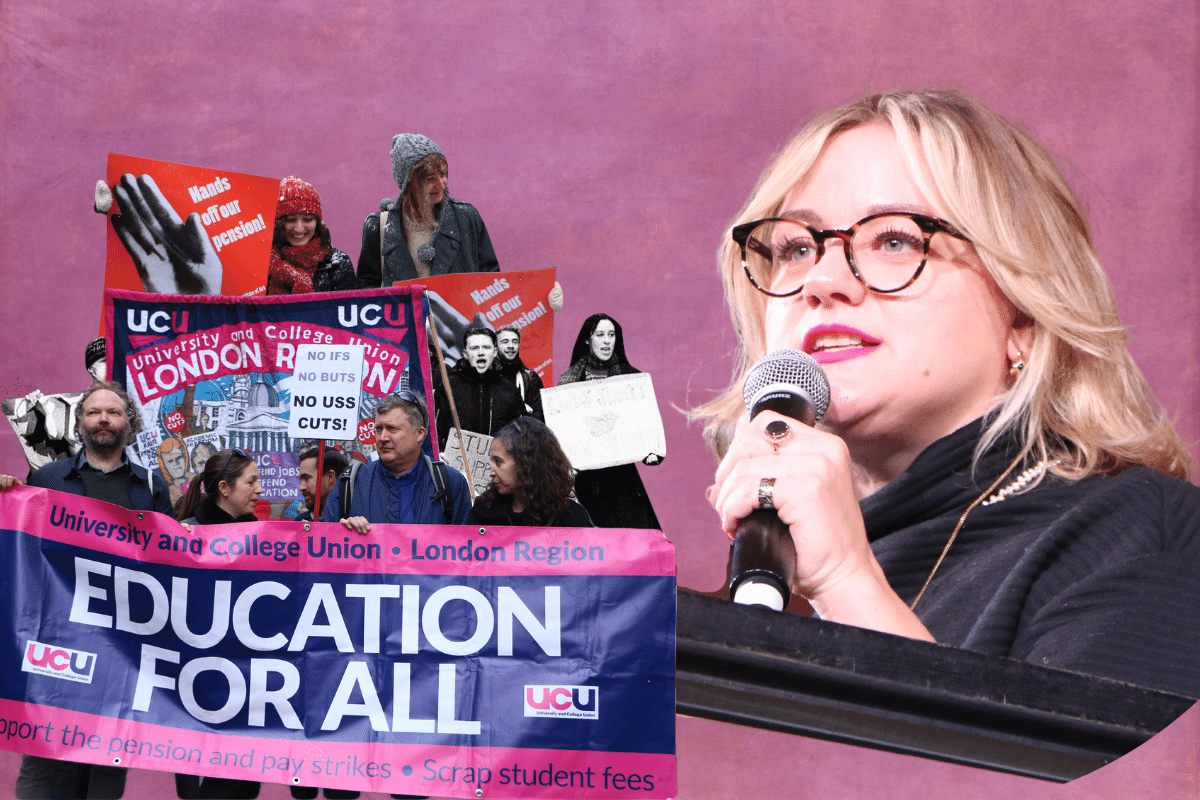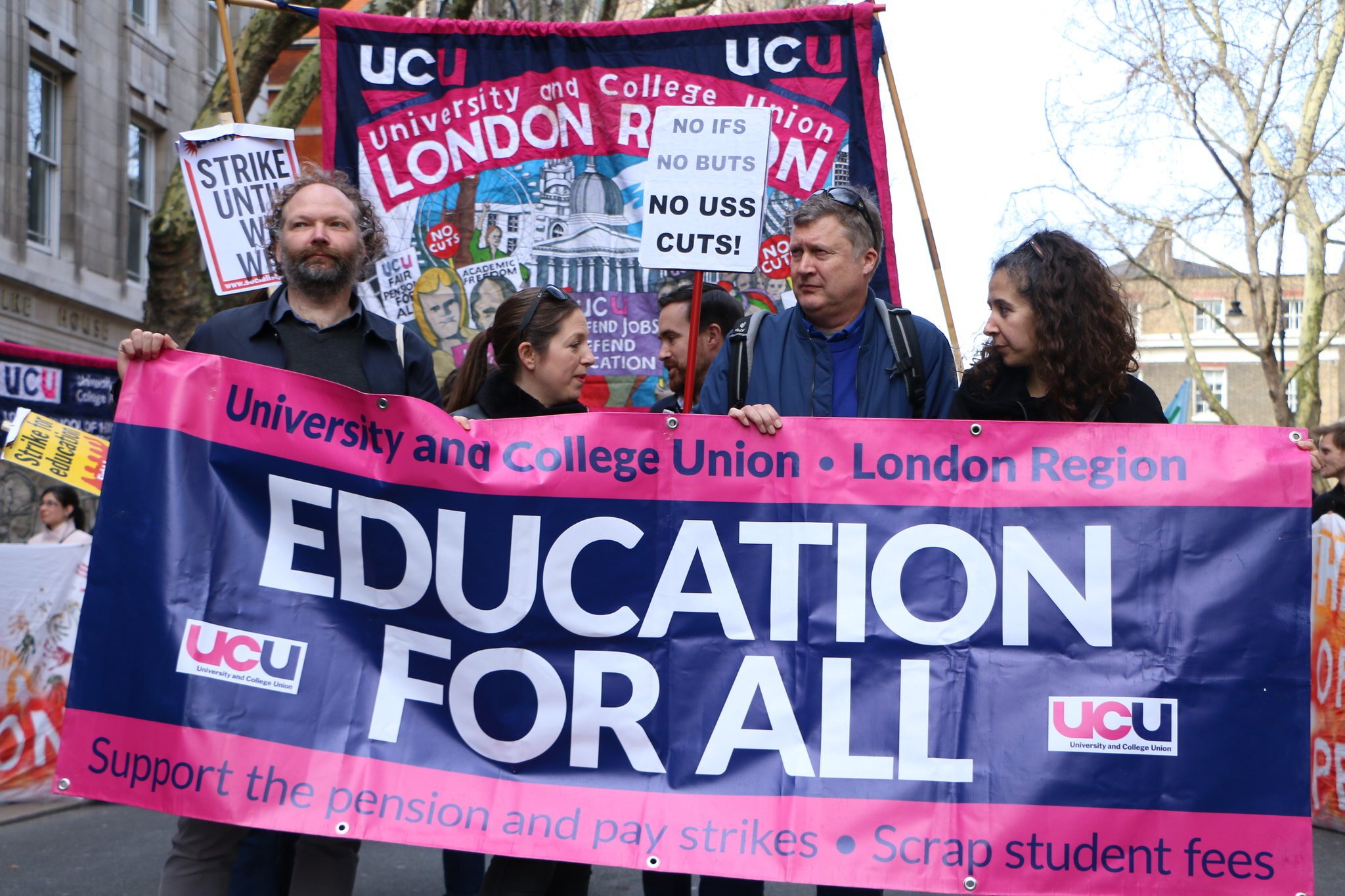University bosses have moved onto the offensive. From Aberdeen to Sheffield Hallam, the employers are on the attack.
As the UK economy starts to tip into recession, the marketised higher education (HE) system is proving particularly brittle.
A decrease in international student enrollments; increased interest rate payments on private loans; a drying up of investment; and cut after cut to university funding: all of these factors are coming together to create a perfect storm for an already-precarious setup.
Incompetent senior management and dodgy consultants are running amok. Workers and students, meanwhile, are left to shoulder the burden via course closures, job cuts, and ‘voluntary redundancy’.
And currently, we lack leadership: one able to link-up the disputes across the HE sector, and to call for nationwide industrial action in coordination with other campus unions.
As a result, the fight against these attacks remains in the hands of individual branches – isolated and with limited scope.
But how have we got here?
State of play
While a long-protracted dispute on pensions has been archived, UCU members in the HE sector are still in an open dispute about pay and working conditions, which is currently at a standstill.
Despite the unprecedented participation of thousands of university lecturers, researchers, and staff in industrial action, along with widespread support from students, this ‘Four Fights’ dispute – including demands over pay, workload, inequality, and casualisation – is far from settled.
Direct sabotage by the union leadership, in particular general secretary Jo Grady, has wasted the potential to win the dispute that was built up over several months of campaigning by rank-and-file members. Workers’ confidence has been destroyed.

The failure to reach the legal 50% quorum in the most recent national ballot for industrial action, last October, is the latest manifestation of the fatigue and frustration that has set in thanks to a leadership unfit to lead the struggle.
More recently, attempts to give control of the disputes back to the membership through the special HE sector conference (SHESC) have been blocked by the right wing on the national executive committee (NEC). This is only the latest attempt to undermine union democracy.
Leadership elections
It is in this context – of a bosses offensive, an ailing national dispute, and a sabotaging leadership – that UCU members will be electing a new leadership, including the general secretary and the NEC.
Ballots open today, 25 January, with voting continuing until 1 March.
Grady, who narrowly survived a motion of no confidence at the 2023 congress, is standing again as a candidate. The tone and rhetoric of her manifesto sits in stark contrast with her recent track record.
She claims to be for “a members’ union” that “must never shy away from serious fights”. But on multiple occasions over the past year, she has sidelined democratically-elected bodies of the union in key strategic decisions – for example, calling off strikes at just a few days notice.
In fact, Grady will be the candidate of the union’s right wing, who do not have any interest in fighting whatsoever.
Instead of offering any way forward, they are busy covering up their own sordid record. Red-baiting articles denouncing “Trotskyism” in the union are one of many deceitful smokescreens they deploy in the hope of distracting members from their own bankruptcy.
UCU Left
Grady’s leadership will be challenged by, amongst others, UCU Left candidate Saira Weiner. Notably, Weiner is the only candidate who pledges to stand on a wage equal to that of the average UCU member – not the cosy six-figure salary currently offered.
We disagree with some of Weiner’s proposals. And UCU Left have made mistakes in the past.
But in this election, Weiner is correctly putting forward a strategy based on militancy and democracy.
This includes a call to establish local and national strike committees during strike action, and a promise that no union committee or official can block decisions made democratically and collectively by grassroots members.
A bold strategy based on the mobilisation of the rank and file is exactly what IMT members in the UCU have always advocated for.
For these reasons, we believe that Weiner is the best candidate in this election. We therefore support a vote for her, along with the wider UCU Left slate.
Way forward
We face big challenges. Any new leadership must have no trust in the bosses. Instead, the union must mobilise most militant rank-and-file members, while actively building support amongst the students.
Campus unions, including the UCU, should be calling and building for coordinated strike action. Only in this way can the struggle in HE be reinvigorated, and the prospect of victory be put back on the cards.
At the same time, the trade union leaders must raise the sights of the working class more broadly: to the need to fundamentally transform society. The UCU is no exception.

More and more workers and young people are disillusioned with the capitalist system in all respects: from the horrors of imperialist wars; to the crisis and corruption of bourgeois ‘democracy’. And they are crying out for a lead – for a force to actually rally behind.
That is why the trade unions need fighting, revolutionary leadership: to become that vital reference point for workers everywhere.
That is what the Revolutionary Communist Party aims to build – in the UCU and across the trade union movement. We urge grassroots activists and workers everywhere to join us in this urgent task.
UCU FE: Path to victory blocked by union officers
Phil Baker, Loughborough College UCU co-chair (personal capacity)
The introduction of the minimum service levels laws restricts up to 1-in-5 workers’ right to strike. But it is not the government or the bosses that are preventing my union branch from fighting for better pay and conditions. Sadly, it is a handful of our own union’s further education (FE) officers.
This is despite our branch having voted to strike several times. Our ballot in September gave us one of the largest mandates in the country – 98% voted to strike on a 63% turnout!
It’s not surprising why. Real-terms pay in FE has fallen by 35% over the last decade. My own college is one of the worst paid in the sector.
Over 89 colleges voted last year to join a national campaign for a 15.4% pay rise and binding pay scales. 76 of these settled for pay rewards between 6.5-10%.
We were also pushed in this direction, told to “manage members’ expectations” and “be realistic”. But a 6.5% offer was rejected by 81% of our members in an online ballot.
We then went on strike last November for three days. This was well supported. And so far, our action has led to a more than doubling of last year’s pay claim to 7.5% (brought forward three months). But we are still 10% poorer than before 2022.
We wrongly assumed, because this was supposed to be part of a “nationally coordinated strike”, that we would shortly hear about the next steps from the union. Yet through the grapevine, in late December, we heard City College Group were striking independently for eight days in January. It now seemed to be a free for all.
We immediately held a branch meeting and voted to go out in February. But a decision to block this from the union’s HQ came through this month, saying the meeting, though quorate, was not well attended! They said going out now without large support could split the branch.
Rather than support our decision, they pour cold water on it. This is the mentality of reformism. It always leads to betrayal.
The branch is currently organising to overturn this, and preparing to reach out to other branches if necessary. We will keep The Communist updated as we continue our struggle.






